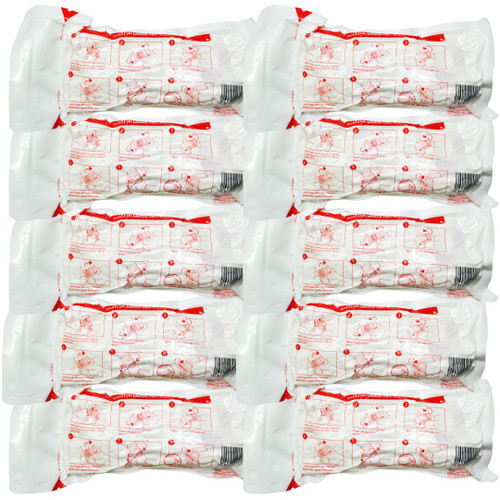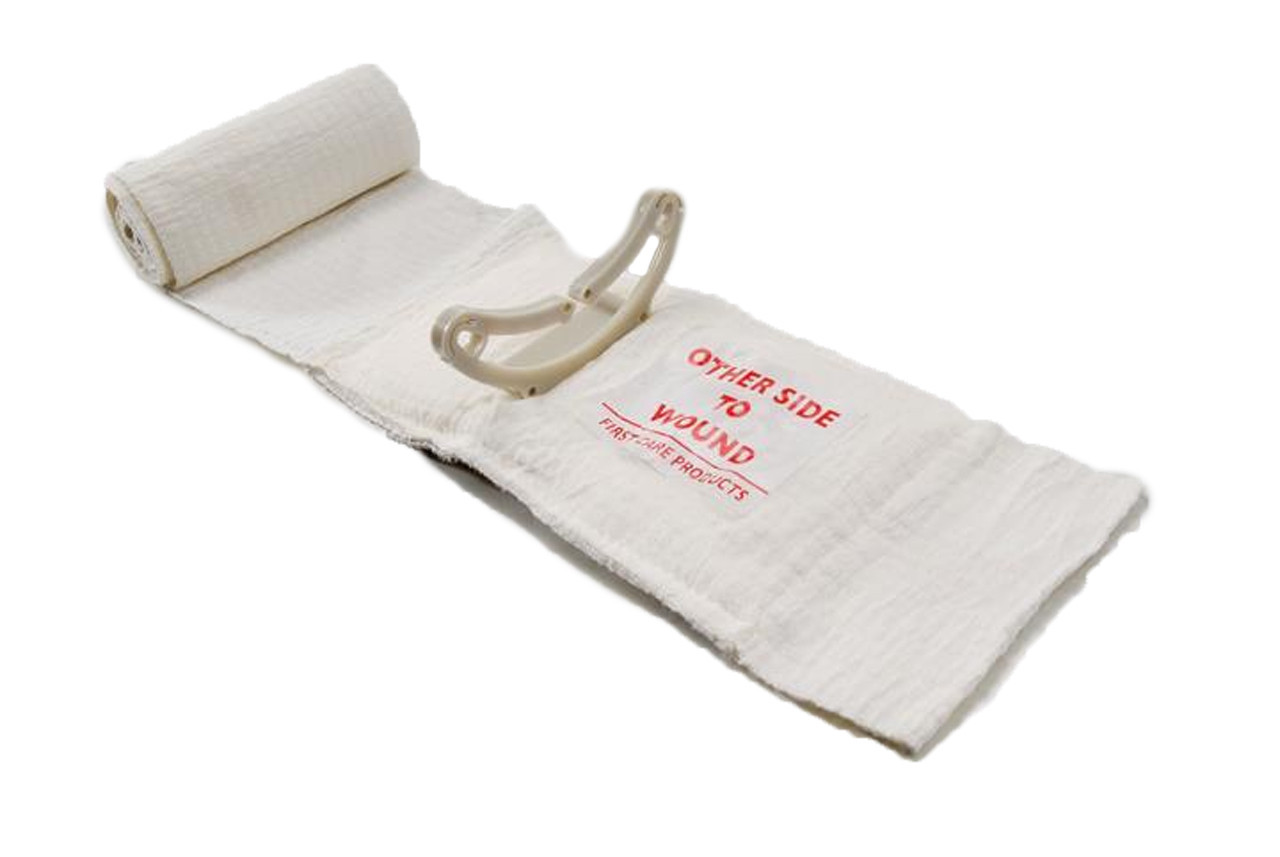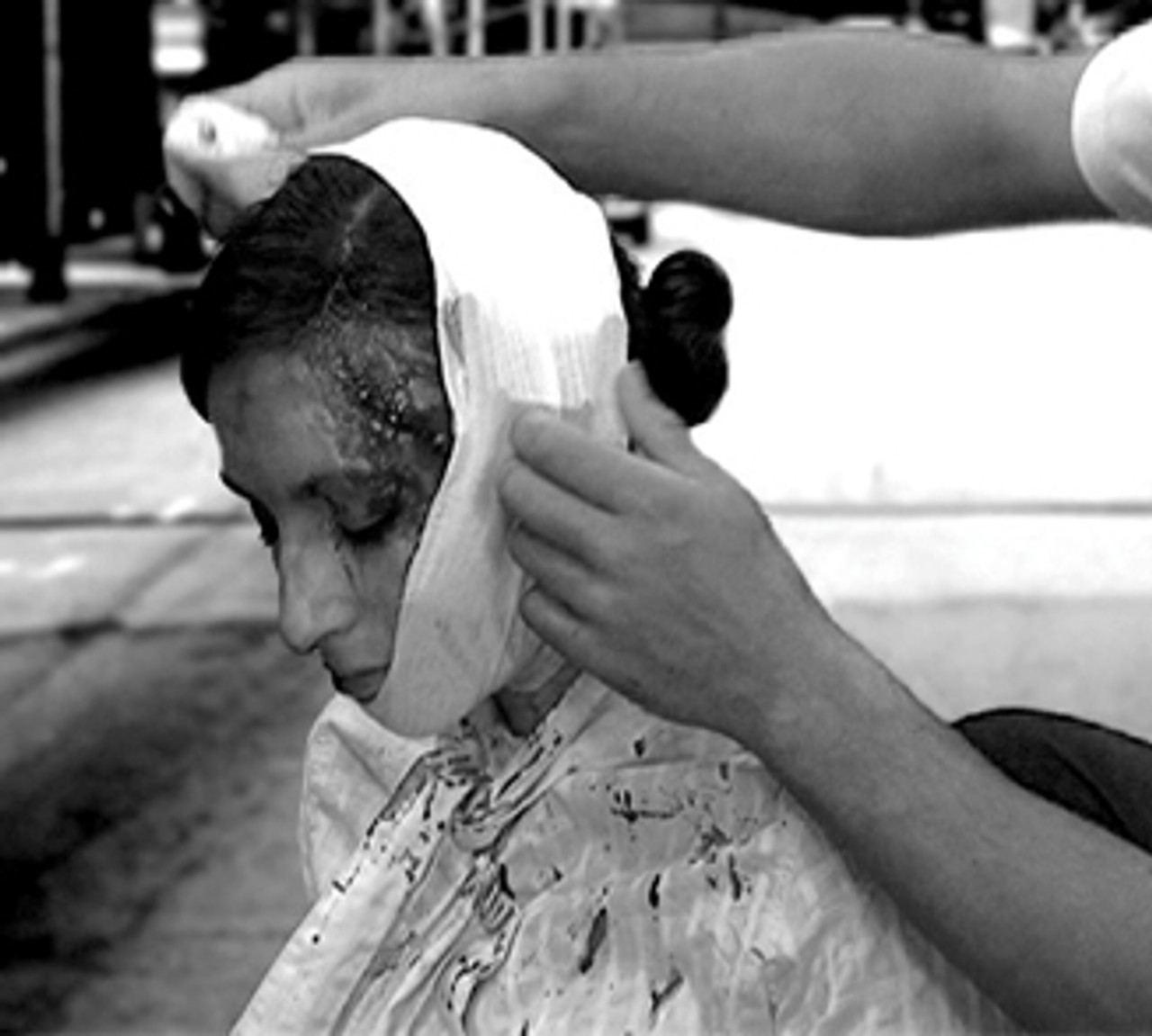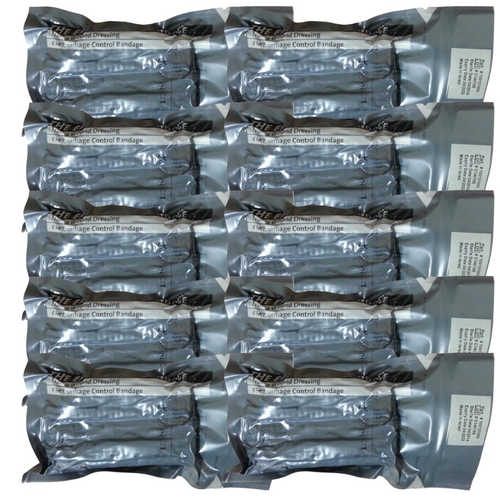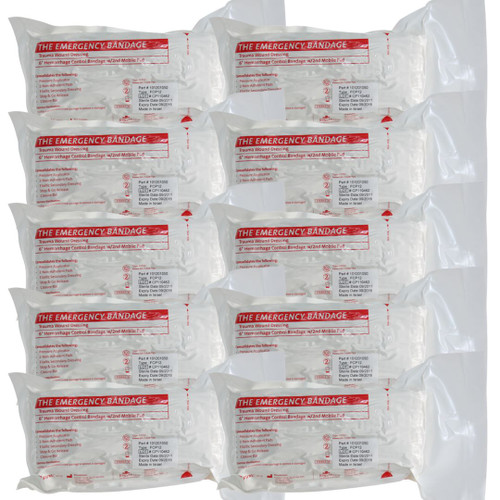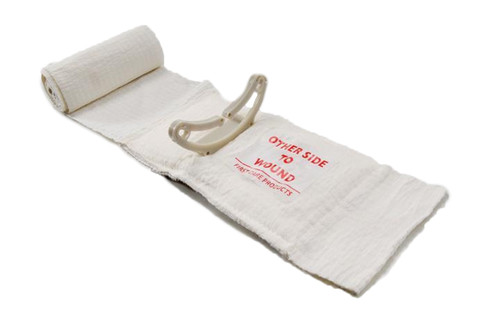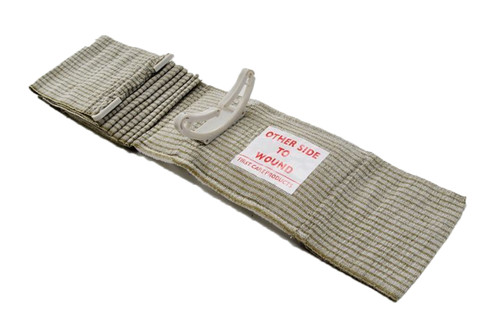Why buy from us?
We get new bandages from the factory in Israel once a month. When you purchase from us you are guaranteed to get the freshest bandages with the longest expiration date possible.
Uniqueness
The Israeli Emergency Bandage consolidates numerous treatment equipment into a single unit and provide in one device:
-
Non-adherent pad. Eliminating the risk of causing pain and having the wound re-opened upon removal of the bandage.
-
Pressure Applicator. Creating the immediate direct pressure to the wound site.
-
Secondary Sterile Dressing. Keeping the wound area clean and maintaining the pad and pressure on the wound firmly in place, including immobilization of the injured limb or body part.
-
Closure Bar. Enabling closure and fixation of the Emergency Bandage at any point, on all parts of the body: no pins and clips, no tape, no velcro, no knots.
-
Quick and easy application and Self-application. Designed with the end-user in mind; for the first-aid trained and the lay care-giver.
-
Significant per treatment time and cost savings.
Ease of Operation
The Emergency Bandage has efficient blood staunching capability and offers ease of operation:
-
The sterile, non-adherent pad is placed on the wound.
-
The application of immediate direct pressure to the wound site is achieved by wrapping the elasticized woven leader over the topside of the bandage pad where the specially designed pressure bar is situated. The pressure bar is designed to readily accept and hold the wrapping leader.
-
After engagement of the pressure bar, wrapping the leader in any direction around the limb or body part and onto the pressure bar forces the pressure bar down onto the pad creating the direct pressure needed to bring about homeostasis.
-
In addition to its primary function, the pressure bar also facilitates bandaging. The elastic bandage uses the rigid shape of the pressure bar to change direction while bandaging, thus affording the caregiver more options for effective dressing of the wound.
-
Subsequent wrappings of the leader secures and maintains the pad in place over the wound, and by covering all the edges of the pad acts as a sterile secondary dressing. The bandage leader is woven to remain at its full width and will not bunch up or twist itself into a rope.
-
The closure system of the bandage is multi-functional yet simple, quick, and familiar. Situated at the end of the leader is a closure bar (dowel with hooking clips) at each end to secure the wrapping leader the same way that a pen is secured in a shirt pocket. The closure bar holds the bandage securely in place over the wound site.
-
If additional pressure is required the closure bar is easily removed from its first closure position and inserted between previous layers of the leader directly above the protruding pressure bar and rotated. This rotation of the closure bar acts to further press down the pressure bar onto the wound to exert blood-staunching pressure. The closure bar is used as before to secure the dressing.
Competitive Advantages
-
The Emergency Bandage is for the untrained lay person as well as the paramedical professional. The bandage features ergonomic designs for quick and easy application to free the caregiver from searching for additional equipment. Focus and control in treatment are enhanced.
-
The sooner the treatment begins the better the victim’s chances of survival, particularly in cases of hemorrhaging.
-
The Emergency Bandage saves time in an emergency situation where every second is crucial. The Emergency Bandage consolidates the functions of numerous separate pieces of equipment into a single easy-to-use unit. Application is simple and quick. As one unit the bandage performs multiple functions, and therefore enhances the treatment provided.
-
The Emergency Bandage provides injury victims acting alone the ability to accomplish the entire bandaging operation independently, including, in certain cases, tourniquet application, even if using only one hand.
-
Consolidation of functions makes treatment more efficient, both medically and economically. Compared to current treatments the Emergency Bandage proves to be an improved life-sustaining device at a competitive price.
-
Immediate and effective direct pressure to the wound may reduce the need for a tourniquet application. This is an important benefit as tourniquet applications are to be avoided and used only as a last resort. In certain cases, if a tourniquet is required the closure bar is removed from above the pressure bar and inserted between previous revolutions of the wrapping leader 5cm above the wound, over the blood vessel, and rotated. This rotation twists the wrapping leader until the blood flow to the wound site is constricted. After a tourniquet has been achieved, the closure bar is used as before to secure and maintain the tourniquet as well as the secondary sterile wound covering which is still in place.
The Story of the Israeli bandage
The story begins at 1984 when Bernard Bar-Nathan was in training to become an Israeli military medic in 1984. He noticed that the bandages issued for bleeding control had been manufactured in the 40s', and haven't been redesigned since. In the training he was taught to grab a stone and to use it to apply pressure to a wound that would not clot on its own, he thought that the bandage should have a pressure bar built in the bandage itself. Bar-Nathan started developing a new more effective bandage that will save crucial time during injuries. In 1990–1991, the idea and the design were developed enough to apply for Israeli Government support from the Office of the Chief Scientist in the Ministry of Industry. The application allowed Bar-Natan to become a part of a technology incubator program in Jerusalem’s Har Hotzvim, with a government grant covering 3/4 of the expenses connected to the research and development of the bandage. After three additional years of development the bandage was ready for commercialization. However, Bar-Natan formed First Care Products Ltd and supervised the design and production of the bandage.
Today, the tactic of caring for wounded soldiers has changed and the wounds are treated in the battlefield. The Israeli Bandage, which can be applied with only one hand, successfully stops bleeding and has been used by the armies of the United States, Germany, Australia, New Zealand, and other countries. David Kleinman, a SWAT team medic who devised a first aid kit used to treat victims of the 2011 Tucson shooting, said that "deputies reached for the Emergency Bandage 'over and over at the scene'" of the shooting.
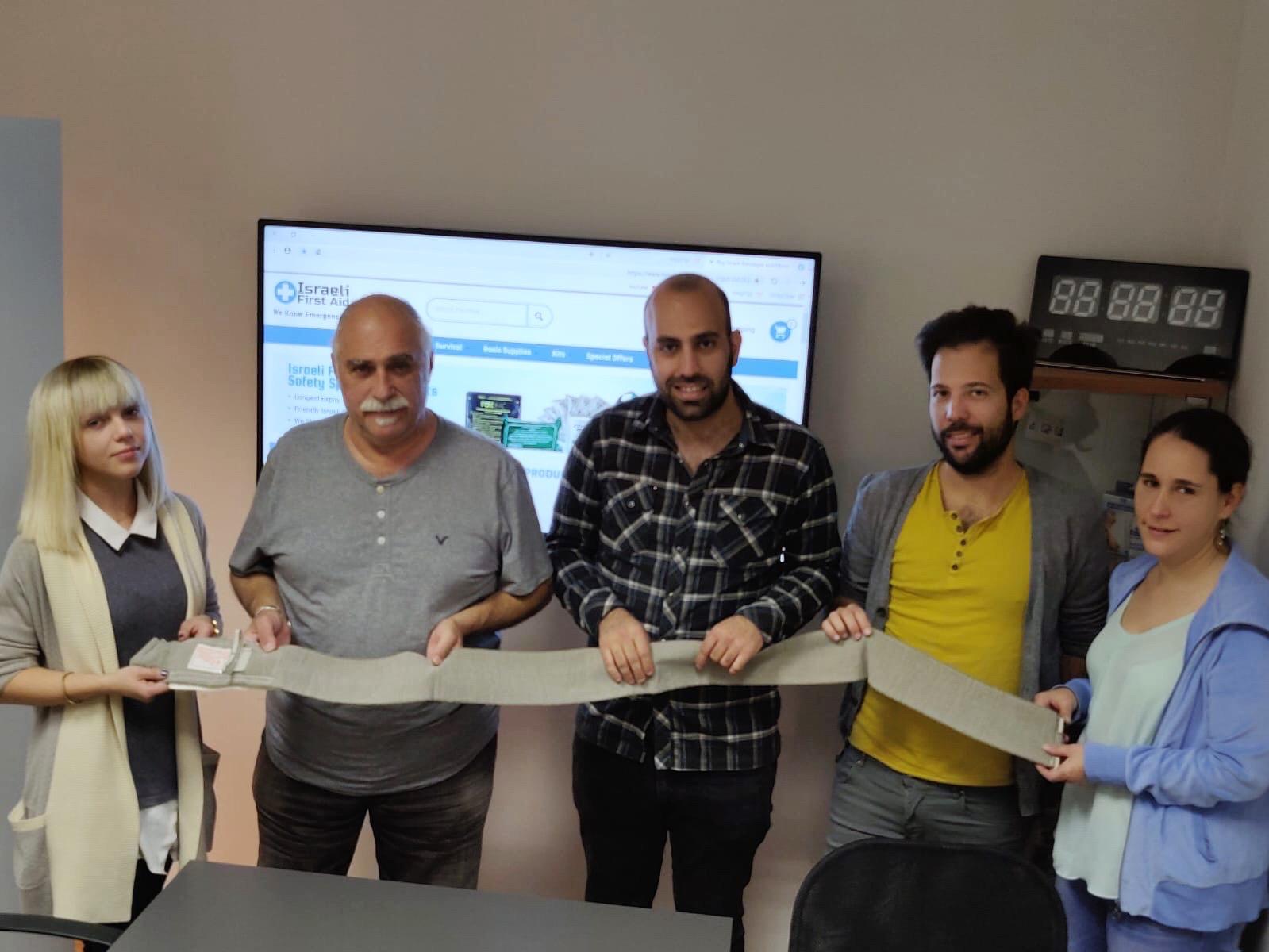
Bernard Bar-Nathan with the Israeli first aid team!


